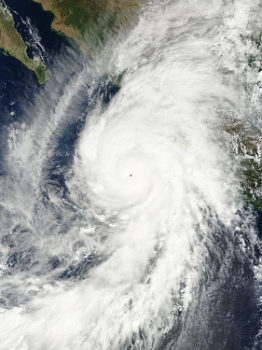 The total cost of Germany’s green energy transition (Energiewende) amounts to over ‚Ǩ520 billion euros by 2025 in the electricity sector alone. This is the result of a report commissioned by the D√ºsseldorf Institute for Competition Economics (DICE). The study is the first full-cost estimate which takes all the costs of the energy transition in the electricity sector into account. At the end of 2015, 150 billion euros had already been spent on the Energiewende, not including the cost for network expansion. The bulk of the costs (25.000 euros for a family of four) will have to be paid in coming years. —Initiative Neue Soziale Marktwirtschaft, 10 October 2016
The total cost of Germany’s green energy transition (Energiewende) amounts to over ‚Ǩ520 billion euros by 2025 in the electricity sector alone. This is the result of a report commissioned by the D√ºsseldorf Institute for Competition Economics (DICE). The study is the first full-cost estimate which takes all the costs of the energy transition in the electricity sector into account. At the end of 2015, 150 billion euros had already been spent on the Energiewende, not including the cost for network expansion. The bulk of the costs (25.000 euros for a family of four) will have to be paid in coming years. —Initiative Neue Soziale Marktwirtschaft, 10 October 2016
The total cost of Germany’s green energy transition (Energiewende) amounts to over ‚Ǩ520 billion euros by 2025 in the electricity sector alone. This is the result of a report commissioned by the D√ºsseldorf Institute for Competition Economics (DICE) on behalf of the Initiative New Social Market Economy (INSM). —Full story & full report (in German)
We told you yesterday that spot prices for German electricity jumped more than 17 percent in one day due to constricted supplies from renewable producers and French nuclear reactors, but as green-crazed Germany continues to wrangle with some of Europe’s highest (and most volatile) electricity prices, American households are about to see the first annual drop in average electricity prices in 14 years. The WSJ reports.
Prime Minister Malcolm Turnbull accused some state governments of putting too much emphasis on generating electricity from wind farms, putting Australia’s energy security at risk and “distorting the national energy market.” Bloomberg, 7 October 2016
100 months ago, The Guardian proclaimed that we have only “100 months” left to save the world from “irreversible climate change”: soaring temperatures, melting ice caps, dangerously rising sea levels, more hurricanes, tornadoes, droughts, and all the other familiar harbingers of catastrophe. Now those “100 months” are up and not one of these predictions has come true. The Sunday Telegraph, 9 October 2016
Lancashire County Council will face a bill for costs in excess of ¬£330,000 over the planning battle for two bids to frack on the Fylde. A spokesman confirmed Cuadrilla has been granted costs relating to the council’s refusal of permission to install a monitoring array near the Preston New Road site. But the total could rise further depending on the final outcome of the application to frack at the Roseacre site. If communities minister Sajid Javid decides that a new traffic management plan can be put together to make the rural roads near Roseacre safe and allows Cuadrilla’s appeal, then that total could rise further. Blackpool Gazette, 8 October 2016
Sales of battery-electric vehicles in Western Europe fell for the fourth month in a row, an analysis of a respected European industry publication says. In August, a month in which the overall Western European new car market climbed 8%, sales of BEVs in the world’ second largest EV market behind China dropped 1.2% compared to August 2015, paid subscribers of the AID Newsletter were told. The harsh realities of EU registrations cast a shadow on the EV euphoria of the Paris motor show, once again raising the question on auto executives’ minds: “Who will buy all those EVs?” Matthias Schmidt, editor of the UK-based publication, thinks he may have the answer: Push comes to shove, OEMs might buy their own cars. Forbes, 8 October 2016
Germany is going to push for all non-electric cars to be sanctioned by 2030 to meet the goals from the Paris global warming agreement. The agreement, which was made early this summer, requires every new vehicle to have zero emission. ITechPost, 9 October 2016
















